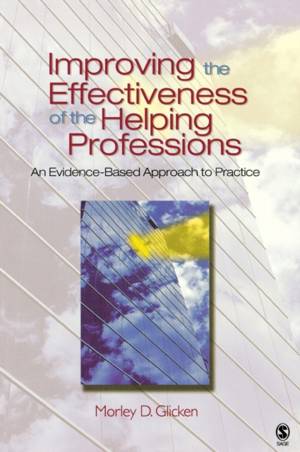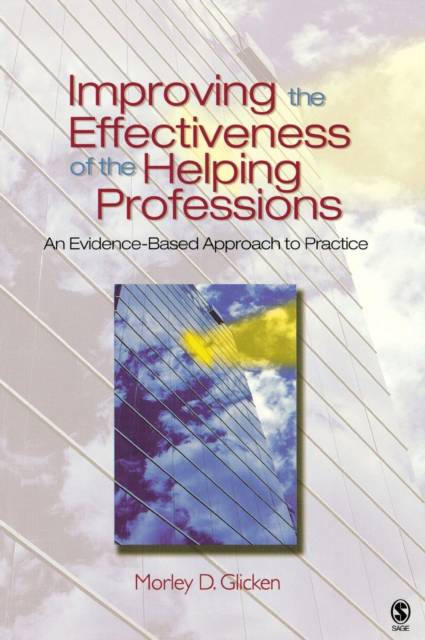
- Afhalen na 1 uur in een winkel met voorraad
- Gratis thuislevering in België vanaf € 30
- Ruim aanbod met 7 miljoen producten
- Afhalen na 1 uur in een winkel met voorraad
- Gratis thuislevering in België vanaf € 30
- Ruim aanbod met 7 miljoen producten
Improving the Effectiveness of the Helping Professions
An Evidence-Based Approach to Practice
Morley D GlickenOmschrijving
Improving the Effectiveness of the Helping Professions: An Evidence-Based Approach to Practice covers the use of research and critical thinking to assist helping professionals make the most effective choices in treating clients with social and emotional problems. The use of evidence-based practice (EBP) comes at a time when managed care and concerns over health care costs coincide with growing concerns that psychotherapy, case management, and counseling may not be sufficiently effective ways of helping people in social and emotional difficulty. The book provides an easy-to-read, inclusive approach covering EBP with posttraumatic stress disorder (PTSD) and terrorism, bereavement, substance abuse, mental illness, and problems experienced by older adults, among others.
Specificaties
Betrokkenen
- Auteur(s):
- Uitgeverij:
Inhoud
- Aantal bladzijden:
- 352
- Taal:
- Engels
Eigenschappen
- Productcode (EAN):
- 9780761930259
- Verschijningsdatum:
- 28/08/2004
- Uitvoering:
- Hardcover
- Formaat:
- Genaaid
- Afmetingen:
- 183 mm x 261 mm
- Gewicht:
- 798 g

Alleen bij Standaard Boekhandel
Beoordelingen
We publiceren alleen reviews die voldoen aan de voorwaarden voor reviews. Bekijk onze voorwaarden voor reviews.











